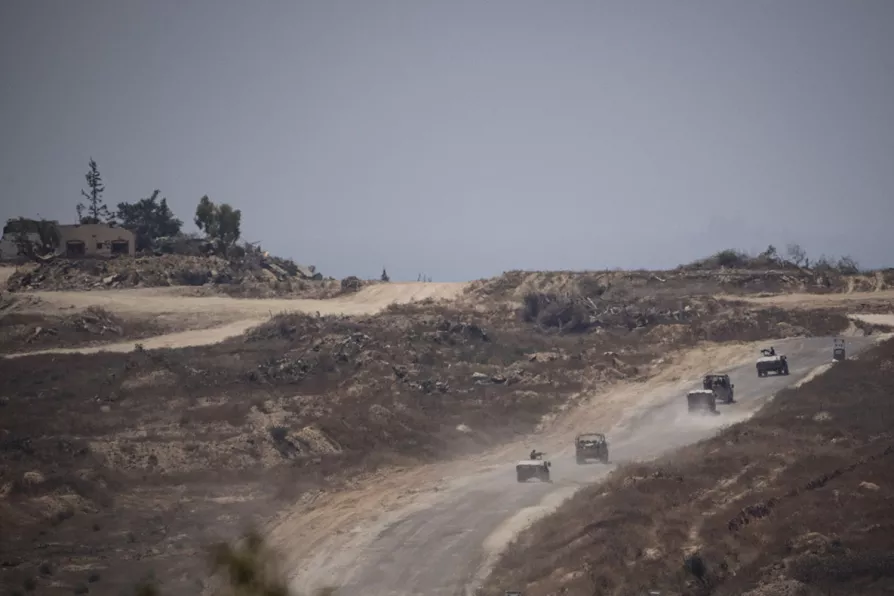
 Israeli soldiers move near the Israeli-Gaza border, June 10, 2024
Israeli soldiers move near the Israeli-Gaza border, June 10, 2024
THE United States said today that some of the proposed changes put forward by Hamas to a US-backed ceasefire plan were “workable” and some were not.
This comes after a massive barrage of rockets were fired into Israel by Lebanon’s Hezbollah group.
US Secretary of State Antony Blinken did not spell out what the changes were. Speaking to reporters in Qatar, Mr Blinken said the US and other mediators will keep trying to “close this deal.”

A chance find when clearing out our old office led us to renew a friendship across 5,000 miles and almost nine decades of history, explains ROGER McKENZIE

ROGER McKENZIE argues that the BRI represents a choice between treating humans as commodities or as equals — an essential project when, aside from China’s efforts, hundreds of millions worldwide are trapped in poverty

The colonial mindset behind the governance of the UN is the reason for its inertia when it comes to conflict resolution, argues ROGER McKENZIE – but can China’s Global Governance Initiative point in a new direction of global equality?















